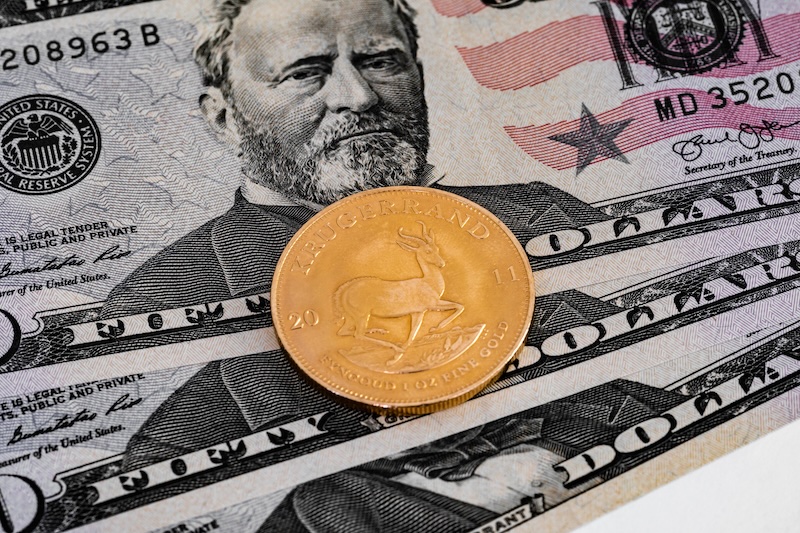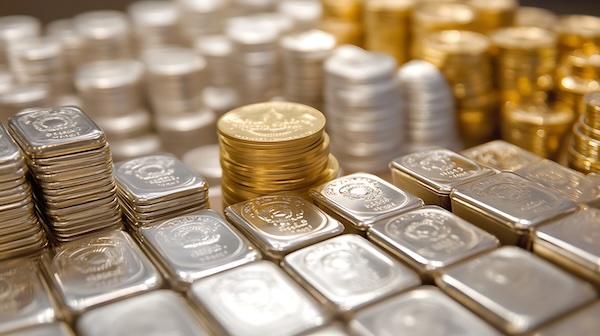Throughout history, investors have relied on precious metals such as gold and silver to safeguard their wealth and add variety to their investment portfolios. If you’re new to metal investments, you might be curious about the distinctions between investing in gold and silver, gold’s role as a store of value, and how to convert these assets into cash. This guide provides straightforward information to address these queries and assist you in making well-informed decisions.
What Is the Difference Between Buying Gold and Buying Silver?
Gold and silver serve similar roles as investments but differ in price, market behavior, and practical uses.
Gold tends to be more expensive per ounce and is seen as a long-term store of value. It’s typically used as a hedge against inflation and currency devaluation. Because it has a higher value in a smaller size, gold is easier to store and transport. It’s popular for central banks and institutional investors looking to preserve wealth.

Silver is more affordable, making it accessible for smaller investors. It is also more volatile than gold because of its dual role as a precious metal and an industrial commodity used in electronics, solar panels, and medical equipment. This can lead to more significant price swings and offer potential growth opportunities.
In summary, gold offers stability and ease of storage, while silver provides a lower entry cost and exposure to industrial demand. Many investors choose to diversify their portfolios with a mix of both metals to balance these differences.
What Does It Mean When People Say “Gold Is a Store of Value”?
When people say that gold is a store of value, they mean that gold retains its purchasing power over time. Unlike paper currency, which can lose value due to inflation or government policies, gold has historically maintained or increased its value across centuries.
Gold achieves this because it is durable, scarce, and universally accepted. As a tangible asset, it is not dependent on any government or central bank, which makes it resistant to economic uncertainty. This is why investors buy gold to preserve wealth during times of inflation, financial instability, or currency devaluation. Even when markets fluctuate, gold’s value remains stable over the long term, providing a reliable way to store wealth.
How Do You Trade Precious Metals for Cash?
Trading gold or silver for cash is straightforward, and there are several ways to do it.
Local coin shops and pawn shops are common options for selling gold and silver. Many of these shops purchase bullion coins, bars, or jewelry directly from sellers, assessing the value based on the current market price, known as the spot price, and the metal’s weight. This option provides a convenient way to receive an immediate cash offer and allows you to work directly with an expert.
Online bullion dealers are another popular choice for selling precious metals. You can request a quote from these dealers, then ship your items to them. Reputable online dealers typically provide insured shipping options, ensuring that your precious metals are secure in transit. Once they verify the authenticity of your items, payment is processed quickly, making it a straightforward option for sellers.
Precious metals exchanges or marketplaces provide a platform for those interested in selling directly to buyers. These specialized exchanges may offer more competitive prices than local or online dealers but often require more time to complete the sale. For those willing to wait, this option can yield a higher return on investment, as buyers are often seeking specific pieces or higher purity levels.
Some banks or private brokers also buy precious metals, particularly gold. However, this service varies by country and bank policies, so it may not always be an available option. For those who can access it, selling to a bank or a private broker can offer an extra layer of security and professionalism in the transaction.
Before selling, it’s essential to check the current spot price and compare offers from multiple buyers to ensure you receive a fair price. You should also confirm that the dealer you choose is reputable by checking reviews or industry affiliations.
Conclusion
Investing in precious metals like gold and silver offers a practical way to diversify your portfolio, hedge against inflation, and preserve wealth. While gold provides stability and is ideal for long-term storage, silver offers affordability and potential growth from industrial demand. Understanding how gold stores value and how to trade metals for cash will help you make better investment decisions. Whether you choose gold, silver, or a combination of both, precious metals can be a reliable tool for wealth preservation and financial security.
